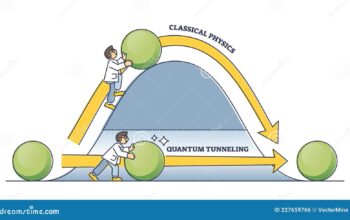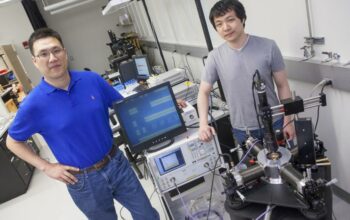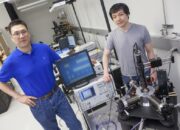The realm of nuclear physics, an intricate branch of physics that delves into the constituents and interactions inherent to atomic nuclei, offers a captivating vista for aspiring scholars. Studying nuclear physics not only unveils the enigmatic workings of the subatomic world but also lays the foundation for a diverse array of professional pathways. The scope of a degree in nuclear physics transcends traditional academic boundaries, weaving itself into the broader fabric of technological advancement, energy solutions, medical innovation, and national security.
At the outset, the academic rigor associated with nuclear physics equips graduates with an extensive toolkit of analytical skills. These skills are crucial in addressing complex scientific problems and interrogating the mysteries of the universe. A solid grounding in mathematics, quantum mechanics, and thermodynamics fosters the ability to approach challenges with a multifaceted perspective. This intellectual dexterity is not merely academic; it serves as a vital currency in various professional sectors.
One of the most prominent sectors that beckons nuclear physics graduates is the energy industry, particularly in the realm of nuclear energy. The promise of nuclear fission as a reliable and low-carbon energy source positions those with expertise in nuclear physics at the forefront of efforts to combat climate change. As nations pivot away from fossil fuels, nuclear power emerges as a pivotal component of a sustainable energy portfolio. Graduates can engage in research and development of next-generation reactors, such as small modular reactors (SMRs) and thorium reactors, which aim to enhance safety and efficiency in energy generation.
Moreover, the advancements in fusion energy, an area that aspires to replicate the sun’s energy production, present yet another horizon of opportunity. The International Thermonuclear Experimental Reactor (ITER) and similar projects are extensive international collaborations that require the specialized knowledge of nuclear physicists. Thus, the possibility of contributing to a paradigm shift in global energy sourcing is an enticing prospect for those with a degree in nuclear physics.
In addition to energy production, the medical field also stands to benefit significantly from the knowledge derived from nuclear physics. Nuclear medicine employs radioactive isotopes for diagnostics and treatment, particularly in oncology. Graduates with a background in nuclear physics can find themselves involved in the innovation of radiopharmaceuticals, elaborating on methods for imaging and therapeutic applications. Their expertise is essential in developing advanced techniques such as positron emission tomography (PET) scans, which have revolutionized cancer diagnostics. The societal impact of these contributions can be significant, directly improving patient outcomes and advancing the field of healthcare.
Furthermore, the role of nuclear physicists in ensuring national security cannot be overstated. Areas such as nuclear deterrence, non-proliferation, and monitoring nuclear events require profound understanding and sophisticated analysis of nuclear physics principles. Graduates often find positions within governmental agencies, national laboratories, or defense contractors, where they focus on safeguarding against the proliferation of nuclear weapons and ensuring compliance with international treaties. This career path not only underscores the importance of nuclear physics but also highlights its ethical implications, as physicists navigate the delicate balance between scientific advancement and global security.
Academic institutions also offer pathways for graduates to transition into research academia. A Ph.D. in nuclear physics can open doors to positions in educational and research institutions, where individuals can lead groundbreaking studies. This academic avenue invites opportunities to explore interdisciplinary collaborations, bridging physics with fields such as engineering, materials science, and environmental science. The pursuit of knowledge can foster outreach initiatives, contributing to science communication and education by engaging younger generations in the exciting world of nuclear discoveries.
Beyond the conventional paths, emerging industries related to emerging technologies present novel avenues for nuclear physics graduates. The intersection of nuclear physics with information technology fosters exploration in quantum computing, where principles of quantum mechanics can revolutionize data processing and cryptography. As the fabric of our digital existence continues to evolve, individuals with a nuclear physics background can position themselves at the nexus of innovation, harnessing their knowledge to pioneer advancements in computing paradigms.
Lastly, soft skills developed during the pursuit of a nuclear physics degree—such as critical thinking, problem-solving, and collaborative capabilities—are universally applicable and highly coveted across industries. Graduates often engage in interdisciplinary teams, bringing a unique analytical lens that enhances innovation in various project endeavors. This adaptability ensures that nuclear physicists thrive regardless of their chosen career trajectory, contributing to technological advancements in myriad sectors.
In conclusion, the scope of a degree in nuclear physics resonates across diverse fields, offering an array of prospects that intertwine scientific inquiry with practical application. As the world confronts pressing challenges—energy sustainability, healthcare transformation, and national security—a profound appreciation for the principles outlined by nuclear physics is paramount. Graduates are uniquely positioned to influence the future, armed with knowledge that not only satisfies intellectual curiosity but also paves the way for significant societal contributions. The study of nuclear physics is not merely a pursuit of academic rigor; it is an invitation to engage with the fundamental truths of our universe, fueling innovation and stewardship in an ever-evolving world.












